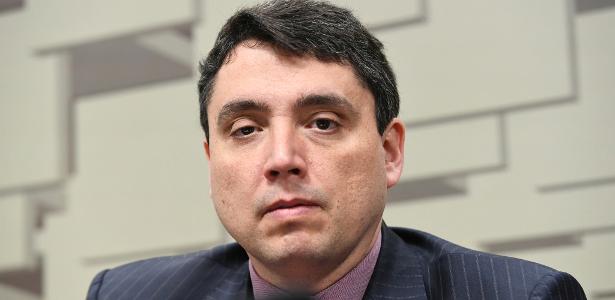
Anatel sees growth in abuse in telemarketing
Experts who participated in the “Combating Abusive Telemarketing” symposium promoted by the National Telecommunications Agency (Anatel) on Friday (25) pointed to the increased use of telemarketing to reach consumers during the pandemic, and even has offensive properties.
Anatel Consultant and Seminar Director, Emmanoel Campelo de Souza Pereira, stressed that the growth of telemarketing during the pandemic was the result of an attempt by companies to maintain gains in the economic crisis scenario, but caused “predatory” behaviour.
“Today I really call this practice predatory telemarketing because it is unsustainable and intolerable and even uses personal data of citizens who have obtained it and who know how,” he said.
In his opening speech, the consultant noted that in this scenario, Anatel placed the rule for identifying telemarketing calls with 0303 in front of the number at the beginning of March. For calls from mobile phones, the rule is already in place and will start working for fixed lines in June.
In the opinion of Bruno Ramos, Director of the International Telecommunication Union (ICU) for the Americas, some marketing practices, like every call, have become “completely obsolete” during the pandemic and even abusive.
He noted that “conversion rates from telemarketing are low and, in addition to being ineffective, they become abusive because they don’t have a standard for contacting the customer and how often you expose them to the situation.”
International experience
Theresa Felix, an analyst at Cullen International, presented a study conducted in ten European countries on the implementation of caller ID services to avoid unwanted calls.
In the combination of the Czech Republic, France, the Netherlands, the United Kingdom, Italy, Ireland, Portugal, Spain, Sweden and Germany, only the first four have a law or regulation in this regard.
In other countries, such as Ireland, Portugal, Sweden and Italy, as well as in France and the United Kingdom, lists have been created of consumers who do not want to receive telemarketing calls.
“One solution that has been found is to create lists in which consumers can register and express whether or not they would like to be contacted by companies for commercial purposes,” Felix noted.
Archana Gulati, former Deputy Rapporteur of the Consumer Rights Study Group at the International Telecommunication Union, points out that telemarketing is widely used because it allows the company to have direct and immediate contact with the consumer.
He noted that, “Instant contact, the consumer is immediately available to the telemarketing company.”
Patrick Webery, vice president of the international office of the Federal Communications Commission (FCC), the US communications agency, noted that the government has been putting in place rules to reduce telemarketing and fraud problems since 2017.
He says the scammers even used the private FCC number, which is not used in calls, to implement the fraud. The problem was solved by putting the agency number in the list of numbers that cannot make calls.
“A few years ago, our toll-free number would appear on caller ID for people who were told they owed government money or requested personal data,” he said.
Anatel مبادرات initiatives
In the panel discussion on Anatel’s initiatives, Carlos Manuel Baigori, advisor and candidate for the presidency of the agency, emphasized that there is no “magic bullet” to solve the problem and that new procedures should continue to be developed in the coming years.
“It’s a point I always make and I think we should really implement regulations from a consumer perspective, but I inevitably think we’ll need to use state enforcement, the weight of the state pen, for that matter,” he said.
Elisa Lionel, Anatel Consumer Relations Supervisor, noted that this is a multifaceted problem that entered the agency’s agenda in 2017.
Do you want to be well informed of everything that is happening in the economy of Brazil and the world? follow the Brasil Econômico Channel on Telegram
“While the panel revolves around telemarketing, the issue is much broader and abusive spam calls are often associated with fraud, crime, personal data theft, etc.”
Vinicius Oliveira Karam Guimarães, Anatel Grants and Resourcing Supervisor, explained the decision to include 0303 in the telemarketing numbers. According to him, this is a great resource for ‘customer empowerment’ and it was also chosen because it allows a large number of numbers.
He pointed out that “we created and started using the 0303 feature with 7 additional numbers, which gives the possibility of 10 million numbers, and the 0303 code was not used much and provided a large number of numbers.”
With regard to calls being made to “disguised” numbers from others, Gustavo Santana Borges, Anatel’s commitments supervisor, said the agency is working on a regulation to certify these calls.
“We understand that it needs to be mitigated with caller IDs, and in fact we need to create more assured credibility for calls and that’s what Anatel is looking at,” he explained.
Academy View
For Jacintho Arruda Camara, Professor at PUC/SP Law School, although Anatel has taken on the role of combating abusive telemarketing, the agency is facing difficulties because the practice is not limited to the sector regulated by Anatel, for telecom service providers.
“There is a whole world of potential violators or reasons for this unwanted behavior that are not directly related to Anatel’s regulatory authority,” he explained.
In her speech, Miriam Wimmer, Director of the National Data Protection Authority (ANPD), referred to cases around the world in which telemarketing companies did not deal with personal data properly, stressing that the problem has several fronts and that solutions need several ways.
“The biggest problem we face today in telemarketing is not the first contact, but frequent and abusive communications, even if the data subject clearly shows that he is not interested in that type of communication,” he said.
To bring the event to a close, Chief Justice of the Supreme Court of Justice (STJ), Humberto Martins, said he personally suffers from unsolicited telemarketing calls, as well as the entire community.
“There is no consumer nowadays who has not been the target of calls and telemarketing operators, and thus represents the most diverse companies and calls, in my opinion, in which services and products are offered that are in most cases not requested.” He said.

“Friendly zombie guru. Avid pop culture scholar. Freelance travel geek. Wannabe troublemaker. Coffee specialist.”






